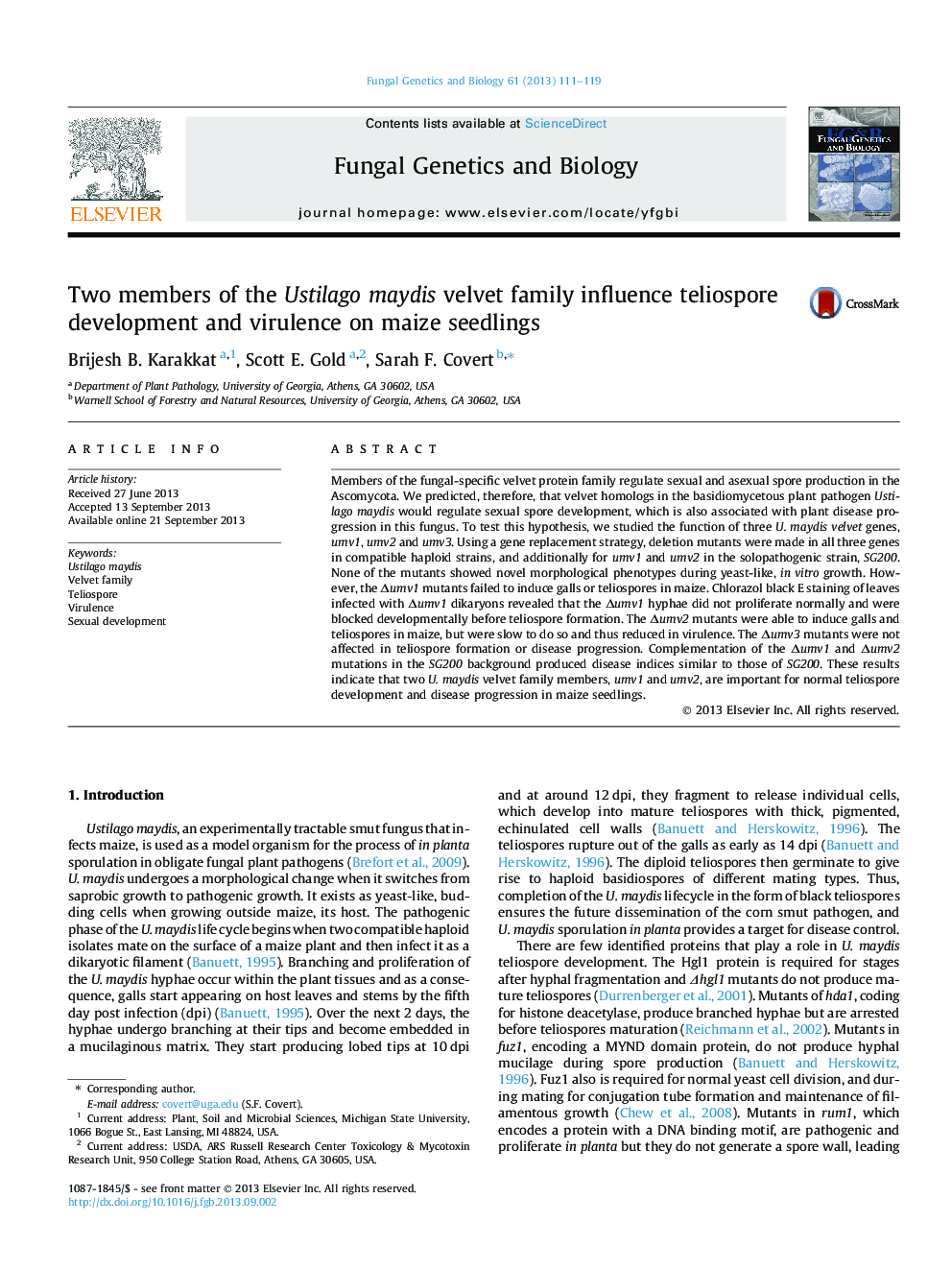| کد مقاله | کد نشریه | سال انتشار | مقاله انگلیسی | نسخه تمام متن |
|---|---|---|---|---|
| 8470938 | 1550030 | 2013 | 9 صفحه PDF | دانلود رایگان |
عنوان انگلیسی مقاله ISI
Two members of the Ustilago maydis velvet family influence teliospore development and virulence on maize seedlings
دانلود مقاله + سفارش ترجمه
دانلود مقاله ISI انگلیسی
رایگان برای ایرانیان
موضوعات مرتبط
علوم زیستی و بیوفناوری
بیوشیمی، ژنتیک و زیست شناسی مولکولی
بیولوژی سلول
پیش نمایش صفحه اول مقاله

چکیده انگلیسی
Members of the fungal-specific velvet protein family regulate sexual and asexual spore production in the Ascomycota. We predicted, therefore, that velvet homologs in the basidiomycetous plant pathogen Ustilago maydis would regulate sexual spore development, which is also associated with plant disease progression in this fungus. To test this hypothesis, we studied the function of three U. maydis velvet genes, umv1, umv2 and umv3. Using a gene replacement strategy, deletion mutants were made in all three genes in compatible haploid strains, and additionally for umv1 and umv2 in the solopathogenic strain, SG200. None of the mutants showed novel morphological phenotypes during yeast-like, in vitro growth. However, the Îumv1 mutants failed to induce galls or teliospores in maize. Chlorazol black E staining of leaves infected with Îumv1 dikaryons revealed that the Îumv1 hyphae did not proliferate normally and were blocked developmentally before teliospore formation. The Îumv2 mutants were able to induce galls and teliospores in maize, but were slow to do so and thus reduced in virulence. The Îumv3 mutants were not affected in teliospore formation or disease progression. Complementation of the Îumv1 and Îumv2 mutations in the SG200 background produced disease indices similar to those of SG200. These results indicate that two U. maydis velvet family members, umv1 and umv2, are important for normal teliospore development and disease progression in maize seedlings.
ناشر
Database: Elsevier - ScienceDirect (ساینس دایرکت)
Journal: Fungal Genetics and Biology - Volume 61, December 2013, Pages 111-119
Journal: Fungal Genetics and Biology - Volume 61, December 2013, Pages 111-119
نویسندگان
Brijesh B. Karakkat, Scott E. Gold, Sarah F. Covert,